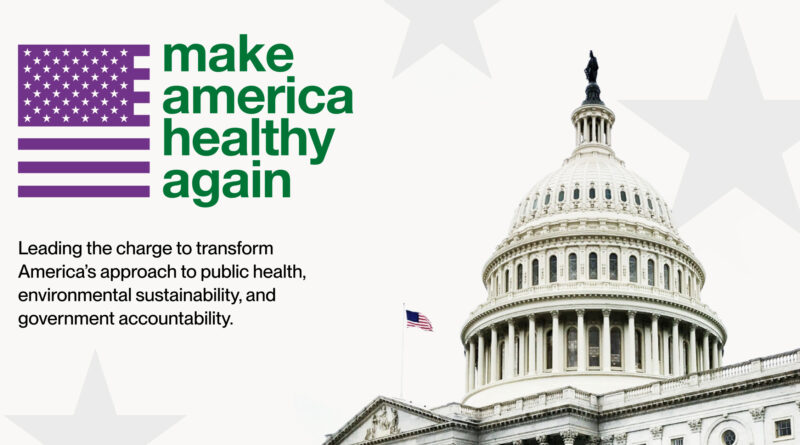Kennedy’s Move to Ban Soda and Sugary Drinks from SNAP Receives Mixed Responses
Aimed at reforming dietary choices in the United States, Robert F. Kennedy Jr., the Secretary of Health and Human Services (HHS), has initiated a movement to prevent the use of Supplemental Nutrition Assistance Program (SNAP) funds for soda and sugar-filled beverages. This assertion is grounded in the belief that taxpayers’ money should not support the purchase of products associated with chronic health conditions such as diabetes.
Among the U.S. territories, the U.S. Virgin Islands record one of the highest rates of SNAP utilisation. According to data from mid-2025, 15,000 of the approximate 87,000 Virgin Islanders depend on SNAP, which equates to almost 17-18% of the region’s population. Compared to the collective U.S. population, where SNAP recipients composed about 12.5% of the population as of 2023, the prominence of SNAP usage within the Virgin Islands becomes evident.
Kennedy delivered a strong stance on the issue at a West Virginia event, remarking, ‘Taxpayers in the U.S. should not be responsible for providing underprivileged children with foods that could potentially induce diabetes.’ This statement, part of the broader ‘Make America Healthy Again’ (MAHA) campaign, sparked a divisive debate. Supporters praised the initiative for its focus on public health, while critics expressed concerns about potential overreach and unforeseen repercussions for struggling families.
States such as West Virginia and Nebraska have taken steps to implement the proposed limitations. Kennedy argues that a significant chunk — ‘10% of the whopping ‘$405 MILLION a day’ expense of SNAP — is spent on sugar-laden drinks, while extending to ’13 to 17%’ when incorporating candy. Despite disputes over the accuracy of these figures, they underscore his argument that a considerable share of SNAP’s budget contributes to health problems related to obesity and diabetes, which, in turn, pressurize public health care systems like Medicaid.
The U.S. Department of Agriculture (USDA), the administrator of SNAP, permits the usage of SNAP for most food items, barring alcohol, tobacco, and hot meals. However, excluding particular items like soda requires either the approval of a state waiver or Congressional action. Kennedy has urged governors to seek waivers, and Nebraska was successful in obtaining USDA approval in May 2025 to enforce a ban on soda and energy drinks.
In the months to follow, Arkansas, Idaho, Iowa, Indiana, Utah, Colorado, Florida, Louisiana, Oklahoma, Texas, and West Virginia either enacted similar bans or declared their intention to do so, indicating a growing momentum for this state-level movement. This policy push corresponds with Kennedy’s MAHA initiative, which elevates healthy eating to the status of a national duty – one that resonates with a sense of patriotism.
Kennedy contends that imposing SNAP restrictions could potentially lower healthcare expenses and enhance health outcomes, especially for indigent children susceptible to diseases related to poor diet. Kennedy placed an emphasis on individual liberty, saying, ‘We are residents of a democratic nation with the freedom of choice. People are free to decide what to buy and what not to buy. While an individual might choose to purchase a sugary soda, it should not be on the taxpayer’s dime.’ This viewpoint seeks to refute critics who perceive these restrictions as infringers of personal freedom and promoters of SNAP recipient stigmatization.
Supporters have hailed the measure as a practical approach to align public expenditure with public health objectives. However, the proposition has met strong resistance from those fighting against hunger and industry associations. Critics have characterized the restrictions as a violation of public policy that disproportionately affects lower-income families, without addressing systemic issues such as the lack of access to fresh produce or the prohibitiveness of healthy food options.
The American Beverage Association has also expressed disagreement, arguing soda consumption patterns amongst SNAP recipients are no different than the general population, and implementing bans would impose enforcement costs upon retailers without any substantiated health benefits. Previous efforts to limit SNAP purchases, such as in Minnesota in 2004 and Maine in 2018, were rejected by the USDA due to logistical difficulties, which has led to skepticism about the viability of Kennedy’s proposal.
Critics also argue that Kennedy’s estimation of $405 million daily spending on SNAP could overstate the real costs. In fact, the USDA reported $112.8 billion expenditure for 2023, and it’s debated whether the introduction of soda bans would decrease consumption without wider initiatives to enhance accessibility to nutritious food items.
This discussion has also exposed intra-governmental strains. With SNAP under USDA purview, some officials within the department view Kennedy’s involvement from the HHS as interference. However, support for state waivers has fostered unique collaboration between the two departments, facilitating path for the implementation of proposals.
Kennedy’s MAHA strategy, which includes prohibitions on synthetic food coloring, amendments to dietary guidelines, and promotion of physical activities, continues to gain momentum. Both HHS and the Food and Drug Administration (FDA) have embarked on defining ultra-processed foods.
Whether this initiative achieves its intended success could depend on whether Kennedy succeeds in maintaining bipartisan backing and effectively negotiating the multifaceted politics surrounding food policies.

